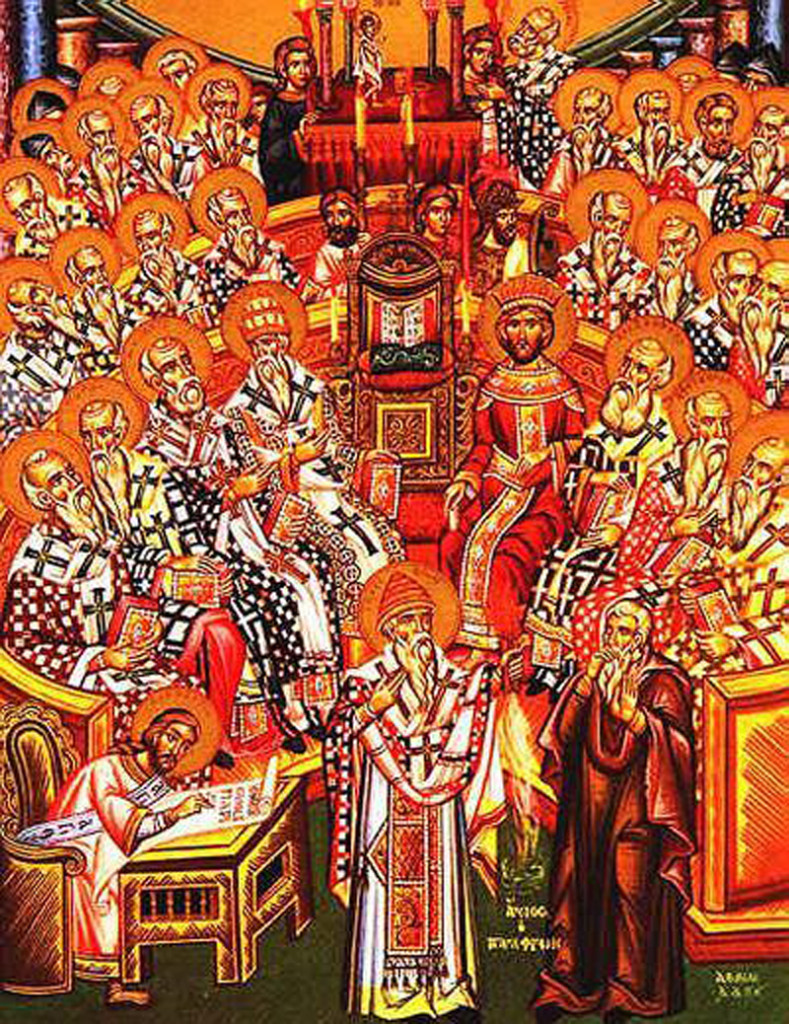I have just finished a wonderful book on the history of “conciliarism”- Paul Valliere’s Conciliarism: A History of Decision Making in the Church (Cambridge University Press, 2012). For those who may be unfamiliar with the term, “conciliarism,” it is simply a way of making decisions in the church through “councils.” It is often cited as the most ancient form of decision making in the church, going all the way back to the famous Jerusalem Council in Acts 15. Anglicans frequently claim that “conciliarism” is the basis for our own governance at every level of the Church – including vestries or PCC’s within the local church, diocesan and Provincial synods – and including the global Anglican Communion itself (through the Instruments of Communion).
One of my favorite quotes from Valliere follows from his application of Philippians 2:5-11 to the way decisions ought to be made in the church – where, instead of insisting on their own positions, leaders and decision makers submit themselves to “the mind of Christ,” “a kenotic mind that empties itself for the sake of others.” (48). He goes on to say from decision making in the early church:
“But who speaks for Christ Jesus when apostles prophets and inspired teachers disagree with each other? As we have already noted, this question goes unanswered in the New Testament, unless we take Paul’s appeal to the kenotic mind of Christ [Phili. 2:5-11], the mind that empties itself for others, as an answer. Indeed, one could justify conciliarism along these lines, for it is difficult to imagine a more kenotic exercise for prophets and apostles, or for inspired teachers and heroic activists, than to be asked to submit their minds to the common mind, to come down from their spiritual hind legs and deliberate side by side with less gifted colleagues.” (68).
I want to therefore commend the decision of the College of Bishops of the Anglican Church in North America (ACNA) to refer the first stage of their work on the controversial issue of women’s ordination to the International Theological Committee (ITC) of the Global Fellowship of Confessing Anglicans, and ecumenical partners (other denominations) in relationship with the ACNA. What a fine example of “emptying themselves” to submit to the “mind of Christ” as expressed in the common mind of GFCA theologians representing the consensus of brother and sister Anglicans all over the world. Instead of creating new “facts on the ground” on either side of the question, or insisting on being “prophetic”, the ACNA Task Force on Holy Orders, and the College of Bishops, will actually wait on a response from the GFCA theologians (who, by the way, are not “less gifted colleagues”!). It is an act of kenotic submission that is at the heart of both the ideal and practice of conciliarism. As the ACNA College of Bishops noted in their Communique (10 January 2014), “It is important to note that this careful, thorough and collegial study into Holy Orders has rarely been done before by Anglicans.”
If only this were the mind that had been followed from 2003 to date with the North American innovations of same-sex blessings and the consecration of same-sex partnered persons as bishops. The crisis of gospel truth within the Anglican Communion might well have been averted.
This cooperation of the ACNA with the Primates and theologians of the Global Fellowship of Confessing Anglicans is a hopeful sign of the recovery of conciliarism within the Anglican Communion – or at least among those within the Global Fellowship of Confessing Anglicans.
Yours in Christ,
Phil+
The Rev. Canon Phil Ashey is Chief Executive Officer of the American Anglican Council.
This article first appeared in the January 14, 2014 edition of the AAC’s International Update. Sign up for this free email.


